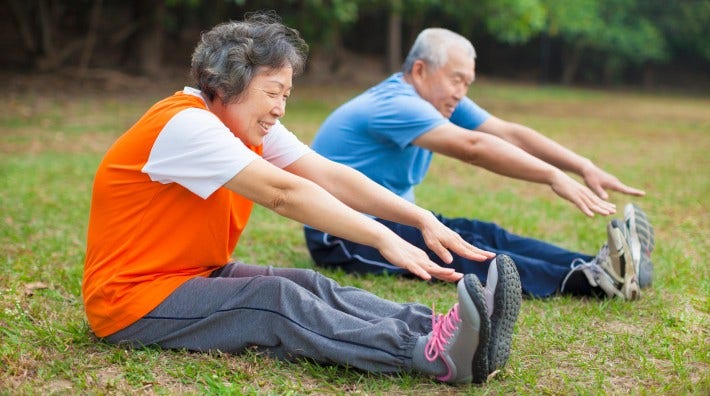Behavioral Interventions Team
We develop and disseminate interventions designed to help people without cancer reduce their risk of developing it and to help people with cancer gain the full benefits of cancer treatment, with the least trouble from side effects as possible.
What We Do
We study how to help people change behaviors—such as quitting smoking or being more active—before and after a cancer diagnosis.
As part of the ACS Population Science department, the Behavioral Interventions team studies the psychological, social, physical, and environmental factors that affect people’s adoption of healthy habits, such as quitting smoking, engaging in regular physical activity, and eating a healthy diet.
We use our research to develop effective interventions and programs to help prevent the development or return of cancer.
Glossary for Nonscientists
Featured Term:
Behavioral Research
Research into what motivates people to act the way they do. The results of such research can be used to help encourage people to adopt healthy lifestyles and follow life-saving screening and treatment guidelines.
We’re using modern technologies, such as tailored emails, to identify effective ways to help people quit smoking.
Our research has shown that more people who smoke quit smoking when they receive multiple tailored, or personalized, email messages than people who smoke who receive only a few, or only received general, unpersonalized emails.
The email messages aim to provide motivation, information, and support for quitting by being tailored to a person’s triggers for smoking, reasons for wanting to quit, smoking-cessation medication preferences, and more.
Our tailored-email smoking-cessation program, Empowered to Quit, is now available.
Our smartphone smoking-cessation app to help newly diagnosed cancer patients quit smoking is in clinical trials. Learn more at: Quit2heal.org
Physical activity is a safe and effective way for cancer survivors to improve their mental and physical health, yet many survivors do not get enough.
To explore ways to help survivors become more active, we developed an online physical activity intervention designed specifically for cancer survivors, called HEALED (Health and Energy through Active Living Every Day) After Cancer. The intervention was a pilot tested in 85 CPS-3 cancer survivors.
By the end of the HEALED After Cancer intervention, the cancer survivors who participated said they:
- Liked the HEALED website and found it easy to use.
- Learned that physical activity is safe for them.
- Felt they became stronger and had better balance.
Because of pilot study’s success, we have expanded the online HEALED After Cancer intervention to a wider group of over 400 cancer survivors in the Cancer Prevention Study-3.





